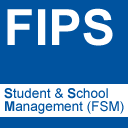FSM-FIPS
Easy and user friendly teacher's evaluation software for tests collecting ability indicators in primary school
An easy-to-use-software for teachers has been developed in FSM-FI PS to evaluate computer based data collected with the FIPS test, i.e. concerning the literacy of pupils. Class and pupil related result feedbacks are created automatically based on individual data. Additionally, the tool offers options for teachers to administer the collected data and to process them further.
PS to evaluate computer based data collected with the FIPS test, i.e. concerning the literacy of pupils. Class and pupil related result feedbacks are created automatically based on individual data. Additionally, the tool offers options for teachers to administer the collected data and to process them further.
Objectives and methods
The developed test of the Center for Evaluation & Monitoring (CEM, Universität Darham) for collecting ability indicators in primary school (FIPS) is a computer based diagnosis instrument to investigate the initial point of learning and the learning development of abecedarians. The use of the instrument can be simplified remarkably with the help of the computer based evaluation.
In cooperation with the Hofgrefe publishing house this TBA project developed a simple and user-friendly software for the computer based evaluation of the FIPS test. Based on the imported individual data class and pupil related evaluation feedbacks are created automatically, which can be printed and saved.
This is how FSM-FIPS looks like:

There have been different challenges for the development of such evaluation software:
- Demonstrating the usability of automatic and technology based creation of result feedbacks within the context of everyday school conditions (in the browser).
- Development and implementation of a practicable anonymization and coding concept for data storage in school.
- The automation of the creation of tabular and graphic result feedbacks (in the purchaser’s layout).
The storage of non anonymised pupil data is carried out only by the collector (the particular school). The software can be used locally even without having internet access. All created result feedbacks can be printed directly as well as saved for the further usage. For the creation of the feedbacks (current) norm data are used, which can be administered centrally. Finally, the anonymised data can be saved centrally and used for further processing of the testing instruments.
Co-operation: project school mature child (Prof. Marcus Hasselhorn, BIEN), Hogrefe Publishing House Göttingen
Duration: 2010 – 2013
Status: completed
Project management: Ulf Kröhne
Further links: Hogrefe Testing Centre